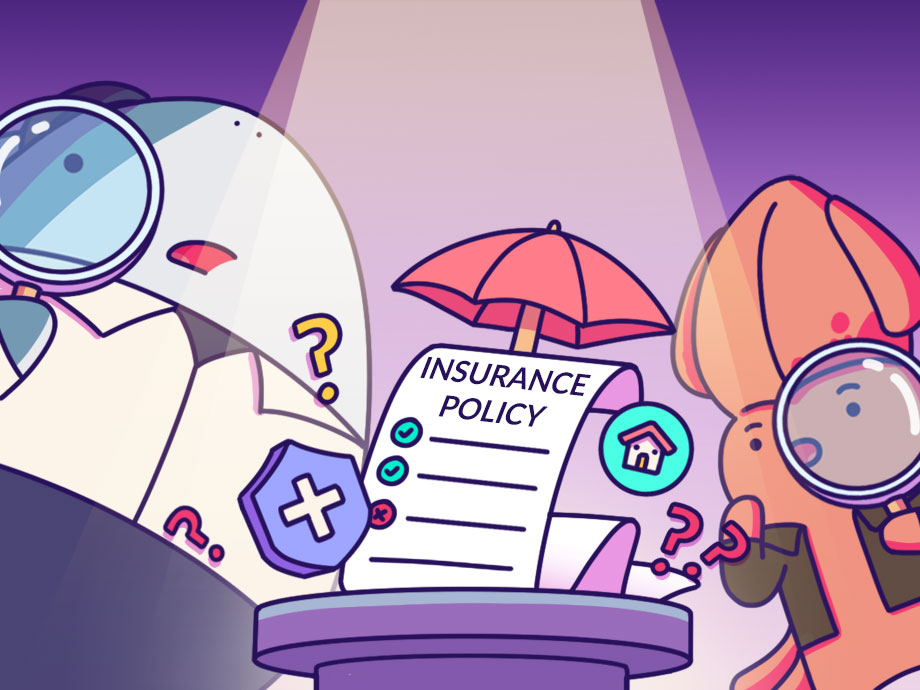Budgeting | Financial Planning | Managing Debt | Personal Finance | Article
Emergency Fund, Retirement, Insurance, Debt: Which Should I Prioritise With My Limited Money?
by Cherry Wong | 4 Jul 2024

Trying to save for life’s financial goals can feel like juggling multiple balls at once.
You may find yourself balancing competing priorities like building an emergency fund, paying off debt, saving for retirement, and securing insurance coverage.
They are all equally important and each financial decision influences the stability and growth of your economic future. With limited resources, you have to prioritise effectively so that you can achieve all your financial goals.
So, how do you know which is more important and how you can navigate this complex money management task? Let’s break it down.
Understanding Your Financial Priorities
While there are common goals many people share, such as building an emergency fund or saving for retirement, the significance of each goal can vary depending on your situation.
Your financial priorities reflect what matters most to you financially at a certain point in time.
While everyone agrees on the importance of things like saving for emergencies or retirement, how you prioritise them depends on your situation. For some, building an emergency fund is urgent, protecting them from unexpected expenses. Others focus on paying off debts, aiming for financial freedom. And then there are those eyeing retirement, setting the stage for a secure future.
Understanding financial priorities is like mapping out your unique financial journey – a tailored path shaped by your needs, circumstances, and dreams.
It’s about creating a roadmap that fits you, not just following a generic plan. Your priorities may also change as life unfolds. Be flexible and realign them to fit your new aspirations.
The Typical Financial Priorities
Before diving into prioritisation strategies, let’s identify the common financial priorities:
Emergency Fund
An emergency fund is like a shield against life’s surprises, offering stability when things get rocky. It’s like having a savings safety net for unexpected expenses, whether it’s sudden medical bills or fixing your car out of the blue. Building an emergency fund is smart planning, helping you stay afloat when life throws curveballs your way.
High-Interest Debt Repayment
Debt can feel like a heavy burden, holding you back from reaching your goals. High-interest debt, in particular, eats away at your finances every day. Paying off debt is like breaking free from financial chains and taking back control of your money. By focusing on paying off high-interest debt, you pave the way for a future where you’re not weighed down by financial obligations.
Retirement Savings
Retirement might seem far off, but it’s important to plan for it now. Saving for retirement isn’t just about money—it’s about securing your future happiness and freedom. It’s like planting seeds of financial security today so you can enjoy a comfortable retirement tomorrow. By setting aside money for retirement, you’re investing in a future where you can relax and enjoy life without financial worries.
Insurance Coverage
Insurance acts as a shield, protecting you from life’s unexpected challenges. Whether it’s health insurance keeping you safe from medical bills or property insurance guarding your belongings, insurance offers peace of mind. By having comprehensive coverage, you’re prepared for whatever life throws your way, giving you the confidence to face life’s ups and downs with resilience.
Related
How to Decide Which Is More Important?
Figuring out the order in which to tackle your financial goals requires careful consideration of several factors.
Let’s break down each one to figure out how to prioritise your finances:
Assess Your Current Financial Situation to Understand Your Finances
Priority: Understanding your income, expenses, assets, and debts
Start by taking a good look at where you stand financially. Calculate how much money you bring in each month, track what you spend it on, and figure out what you own (like savings or investments) and what you owe (like debts or loans). Understanding this helps you make smart decisions about your money.
Why is this important: It lays the foundation for informed decision-making. Knowing where you stand financially helps you set realistic goals and develop strategies to achieve them. Without this understanding, it’s challenging to make effective financial decisions.
Example: If you realise that you’re spending more than you earn each month, it’s a sign you need to cut back on expenses or find ways to increase your income.
Create a Realistic Budget
Priority: Allocating income towards savings, debt repayment, and essentials
Making a budget is like drawing a map for your money. Decide where your income should go – whether it’s savings, paying off debts, or spending on necessities. Keep track of what you spend and look for areas where you can save money to put towards your goals.
Why is this important: Budgeting ensures that your money is used wisely. It helps you track spending, identify areas where you can save, and prioritise financial goals. Without a budget, it’s easy to overspend or neglect important financial obligations.
Example: If you love eating out but realise it’s eating up a big chunk of your budget, you might decide to cook more at home to save money for other things.
Consider Urgency and Importance
Priority: Addressing immediate needs like building an emergency fund
Some financial goals need your attention right away, like building an emergency fund to handle unexpected expenses. Other goals, like saving for a vacation, can wait. Think about what’s most urgent and what will have the biggest impact on your financial well-being.
Why is this important: Urgent goals safeguard your financial well-being. An emergency fund protects you from unexpected expenses, while timely debt repayment prevents interest from snowballing. By prioritising urgent goals, you strengthen your financial foundation and resilience.
Example: Knowing that you may get retrenched, you’ll need to prioritise setting up an emergency fund to avoid financial problems in case of job loss.
Interest Rates and Investment Opportunities
Priority: Paying off high-interest debts and exploring investment options
Look at the interest rates on your debts. High-interest debts, like credit cards, can cost you a lot over time. Paying off these debts first can save you money in the long run. At the same time, explore investment options that match your goals and risk tolerance to make your money work for you.
Why is this important: High-interest debts drain your finances, so paying them off quickly saves you money in the long run. Exploring investment opportunities allows your money to grow over time, helping you achieve long-term financial goals. Prioritising these actions maximises your financial resources and accelerates wealth accumulation.
Example: If you have credit card debt with a high interest rate, paying it off quickly saves you from paying even more interest over time.
Factor in Life Events and Milestones
Priority: Planning and saving for significant life events
Think about big life events you might encounter, like getting married, having children, or buying a house. Plan by setting aside money for these events so they don’t catch you off guard financially.
Why is this important: Anticipating life events ensures financial preparedness. Saving for milestones like buying a home, starting a family, or funding education prevents financial stress and allows you to enjoy these experiences without worrying about money. By prioritising these goals, you build a secure financial future for yourself and your loved ones.
Example: If you plan to have a baby in a couple of years, start saving now for things like medical expenses and childcare costs.
Short-Term and Long-Term Goals
Priority: Setting clear timelines and milestones for financial objectives
Divide your financial goals into short-term (like building an emergency fund) and long-term (like saving for retirement). Set clear timelines for each goal and adjust your plans as life changes.
Why is this important: Distinguishing between short-term and long-term goals helps allocate resources effectively. Short-term goals address immediate needs and lay the groundwork for long-term aspirations. Prioritising both ensures balanced progress towards financial security and fulfilment.
Example: Saving for a vacation next year is a short-term goal while saving for retirement is a long-term goal that requires consistent contributions over time.
Putting It All Together
Balancing competing financial priorities requires careful planning and discipline. Start by setting up a solid financial foundation with an emergency fund to cover unexpected expenses. Next, focus on paying off high-interest debt to free up resources for other goals.
Once your debt is under control, prioritise retirement savings to secure your financial future. Take advantage of employer-sponsored retirement plans and consider additional retirement accounts to maximise your savings potential.
Finally, ensure you have adequate insurance coverage to protect yourself and your loved ones against unforeseen events. Review your insurance policies regularly to adjust coverage as needed.
In conclusion, effective money management involves making informed decisions about how to allocate your financial resources. By understanding your priorities and implementing a strategic plan, you can work towards achieving your financial goals and building a secure financial future.


















